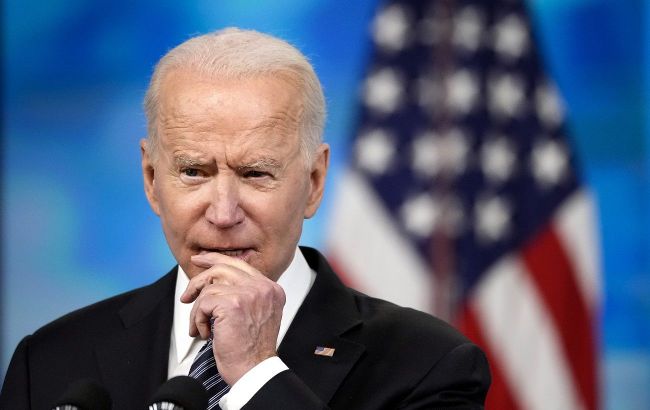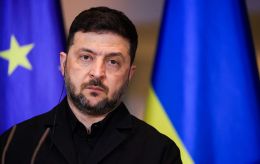U.S. changes strategy to support Ukraine - Politico
 U.S. possibly changes strategy to support Ukraine (photo: Getty Images)
U.S. possibly changes strategy to support Ukraine (photo: Getty Images)
The administration of U.S. President Joe Biden is discussing with European partners possible changes in support for Ukraine: the goal of complete victory over the aggressor country of Russia may be switched to improving Kyiv's position in possible negotiations with Moscow to end the war, states Politico.
The article points out that such changes in Washington's strategy to support Ukraine are centered on a possible shift to a more defensive posture. This is because assistance to our country from the United States and Europe "is now in serious jeopardy."
It is noted that the White House and the Pentagon publicly insist that there are no official changes in the Biden administration's policy of supporting Ukraine's intention to completely oust the Russian invaders and liberate the occupied territories.
At the same time, the publication's sources in the Biden administration and a European diplomat said that in conversations with the Ukrainian side, American and European officials are now discussing the possibility of focusing on strengthening the defense position against Russian invaders in the east of the country instead of launching a counteroffensive by the Armed Forces.
"This effort has also involved bolstering air defense systems and building fortifications, razor wire obstructions and anti-tank obstacles and ditches along Ukraine's northern border with Belarus," the article says.
Washington is also focused on quickly reviving the defense industry to supply much-needed weapons.
An administration official told Politico this week that much of this strategic shift to defense is aimed at strengthening Ukraine's position in any future negotiations.
An administration official told Politico this week that much of this strategic shift to defense is aimed at strengthening Ukraine's position in any future negotiations.
"That's been our theory of the case throughout - the only way this war ends ultimately is through negotiation. We want Ukraine to have the strongest hand possible when that comes," the American official said.
At the same time, they emphasized that no negotiations are planned yet, and Ukrainian troops are still on the offensive and continue to inflict significant losses in manpower and equipment on the Russian occupiers.
U.S. assistance to Ukraine
The U.S. Congress failed to approve Joe Biden's request to allocate more than $100 billion for national security needs by the end of 2023. This request includes more than $60 billion for Ukraine.
The main stumbling block was Republicans who refused to support the initiative. They demanded that the White House include in its request their proposals for strengthening border security.
On December 22, U.S. President Joe Biden signed the annual defense spending bill, which provides a record $886 billion for the Pentagon. The bill also includes assistance for Ukraine, namely the allocation of $300 million.
On Wednesday evening, December 27, U.S. Secretary of State Antony Blinken announced that the United States had provided Ukraine with a $250 million military aid package.
Issues in Ukraine's negotiations with Russia
After the start of Russia's full-scale invasion of Ukraine, the two countries held several rounds of talks, but then they were put on hold. Last year, President Volodymyr Zelenskyy approved the National Security and Defense Council's decision on the impossibility of negotiations with Russian dictator Vladimir Putin.
To resume negotiations, Russia must:
- completely leave the territory of Ukraine;
- change the political elite;
- recognize war crimes;
- extradite the organizers of the war for trial.
Recently, foreign media reported that Russian dictator Putin had conveyed through diplomatic channels that he was allegedly ready to freeze the war in Ukraine.
Earlier, Ukrainian President Volodymyr Zelenskyy said that after the leaders' summit on the "peace formula," a document would be drawn up and submitted to Russia for consideration. If the Kremlin is ready to accept it, the negotiations will become relevant.
Earlier, the Institute for the Study of War (ISW) explained what the true motives may be behind Putin's "signals" of a desire to freeze the war against Ukraine.

